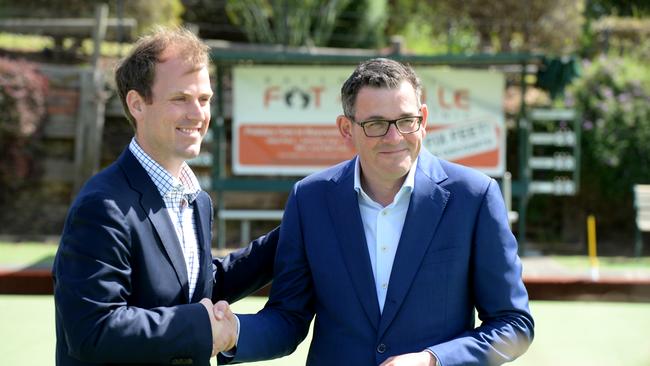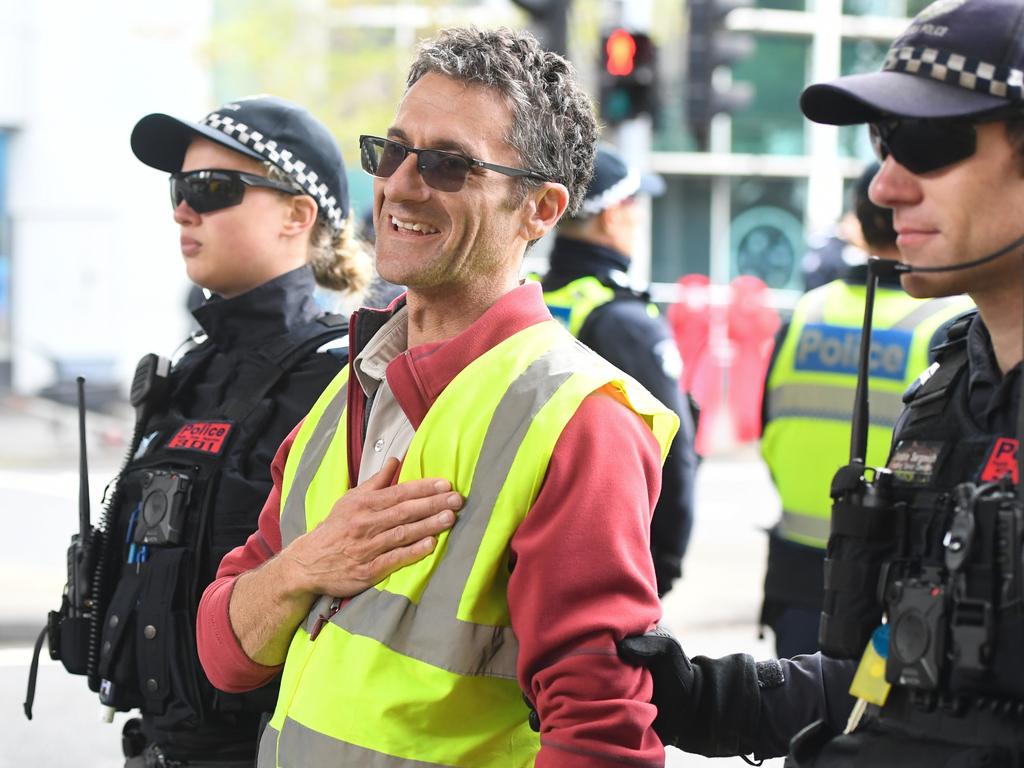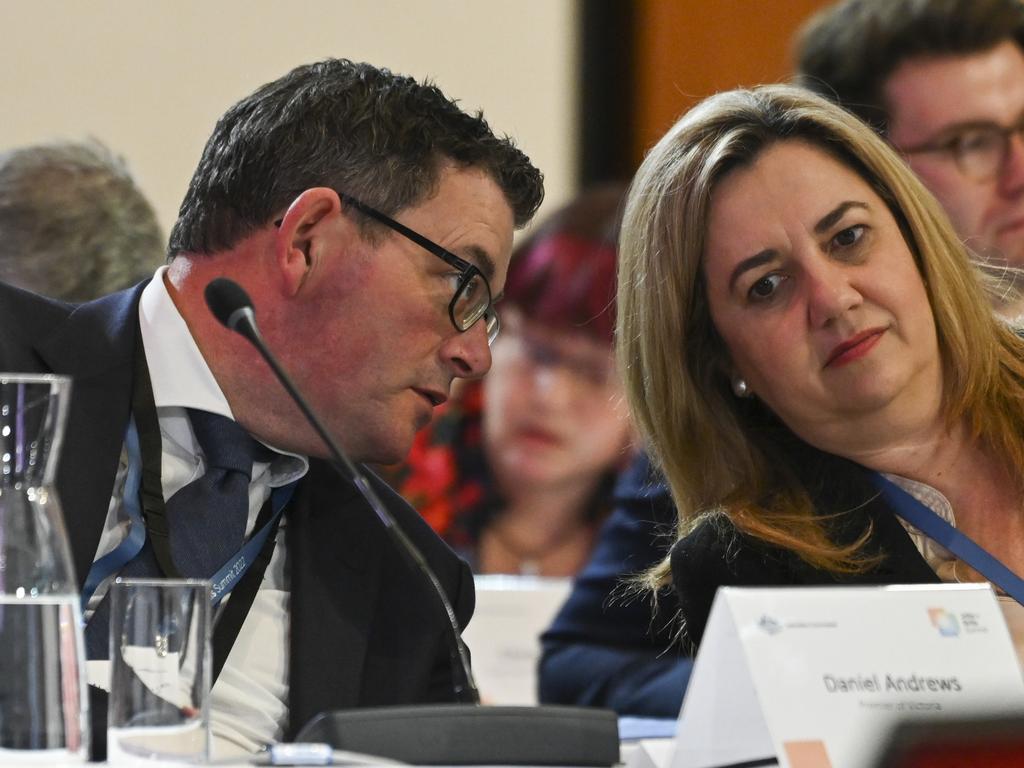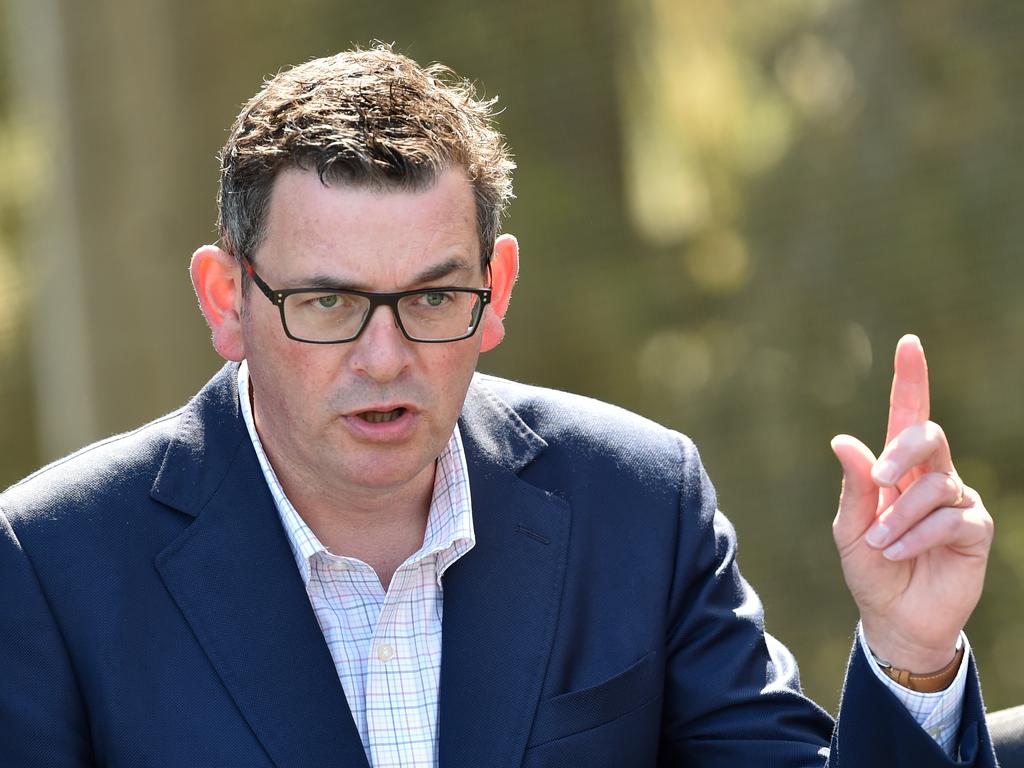Victoria’s budget deficit blows out by further $500m
Victoria’s budget deficit has blown out since last week to more than $10 billion, the state’s pre-election budget update has revealed.

Victoria’s budget deficit has blown out by another half a billion dollars since last week, to more than $10 billion, the state’s pre-election budget update has revealed.
Treasurer Tim Pallas last week handed down the government’s mid-year budget update, on the last day before writs were issued for the November 26 state election, confirming Victoria’s 2022-23 deficit had blown out by $1.8bn since the May budget, to $9.7bn.
Thursday’s pre-election budget update, published by the Department of Treasury and Finance, shows a further $500m blowout to $10.2m — an increase of $2.3bn since May.
This is despite a $700m increase in the state’s anticipated tax take since May.
The increased deficit has added directly to net debt, with Victoria now set to owe $165.9bn by June 2026 — more than NSW, Queensland and Tasmania, whose combined debt is set to reach $159.2bn by the same date.
The latest update also shows a significant blowout in expected interest payments as both net debt and interest rates increase, with the bill expected to balloon to $7.44bn in 2025-26 — up from the $6.38bn predicted in the May budget, and $3.86bn this financial year.
Thursday’s update warns that while state final demand is well above pre-pandemic levels and Victoria’s unemployment rate is around its lowest level since the mid-1970s, growth “will be tempered” by rising interest rates and a weaker global economic outlook.
“Inflation has risen domestically and globally, driven by ongoing pandemic-related supply-chain disruptions, Russia’s invasion of Ukraine, and strong consumer demand,” the update warns.
“It is expected to peak in late 2022 and then decline progressively.
“The risks to Victoria’s economy are elevated and include uncertainty around the outlook for domestic and global inflation, interest rates, geopolitical conditions, recent flood events, and ongoing impacts of the Covid-19 pandemic.”
The news came after Daniel Andrews spent another day on the campaign trail defending his government’s record on integrity and fending off questions about the state’s anti-corruption watchdog.
The Victorian Premier said he will not urge the federal government to refrain from making it illegal for journalists to publish details about investigations carried out by a national anti-corruption commission as is the case in Victoria.
“It’s never been my experience that anybody in the federal government needed encouragement from a state premier,” he said.
“Our record is clear. (We) increased funding for (anti-corruption) agencies. Some reforms we have made when they sought them, others we have chosen not to and we have been criticised by the agency and by our political opponents.
“We have increased their budget massively, we have agreed to some changes that they have asked for.”
At the weekend Mr Andrews rejected calls from the independent broad-based anti-corruption commission to make it an offence for journalists to publish leaked draft inquiry reports, after the Nine Newspapers revealed the Premier was being questioned over suspected corrupt conduct relating to $3.4m in grants awarded to the Health Services union.
On Thursday he said he would not support the request.
“We were asked to do it. We didn’t. We won’t,” he said.
“And the agency, as is their right, has criticised us. More voices rather than less, I have always supported that.”
IBAC issued a statement on November 4 calling for the state government to make it illegal for anyone to publish findings of leaked investigations.
“At present it is only an offence for a person who receives a draft report (to enable them to provide a response) to disclose its contents,” the statement read.
“As a result of previous unlawful leaks to the media of information contained in draft reports, IBAC raised with government the need for urgent legislative change that would make it an offence for anyone, including the media, to publish information IBAC draft reports, or the information contained in them.”






